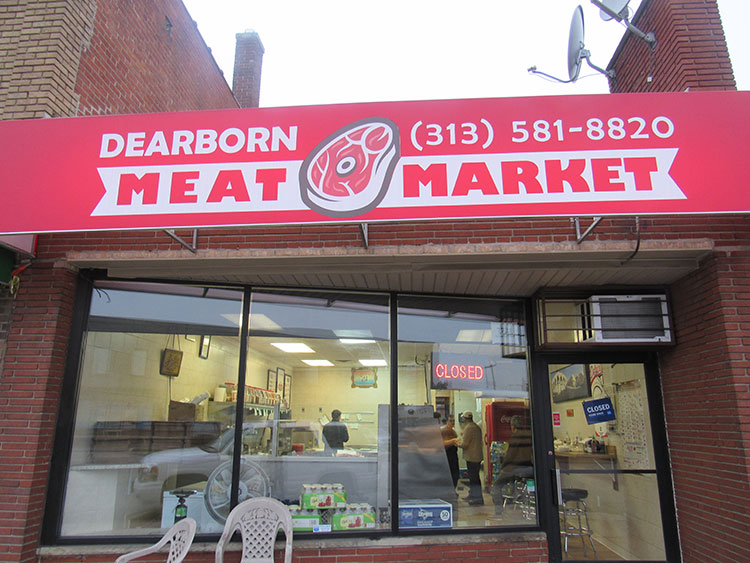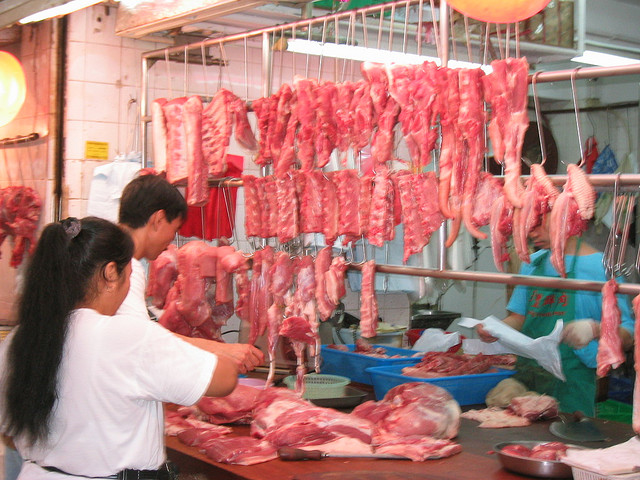Discover Fresh Local Produce at Farmers Market Edwardsville IL This Weekend
Discover Fresh Local Produce at Farmers Market Edwardsville IL This Weekend
Blog Article
Why Buying at a Farmers Market Sustains Local Farmers and Your Neighborhood
Purchasing at a farmers market works as a concrete ways of sustaining local farmers while concurrently bolstering the economic material of your neighborhood. By participating in these industries, consumers contribute to a sustainable agricultural ecological community that focuses on fresh, top quality produce and promotes straight partnerships in between growers and buyers. This practice not just cultivates a feeling of area yet also encourages the preservation of local food customs. Comprehending the more comprehensive effects of these communications can reveal just how seemingly simple choices at a farmers market can resonate throughout the entire community. Consider the impact this carries neighborhood economies and food systems.
Economic Advantages of Farmers Markets

Farmers markets substantially contribute to local economic situations by cultivating direct sales between manufacturers and consumers. This direct purchase design gets rid of intermediaries, enabling farmers to preserve a bigger share of the revenues. Subsequently, this raised revenue equips neighborhood farmers to reinvest in their procedures, purchase much better equipment, and improve farming techniques. Such reinvestment not just improves productivity yet also endures neighborhood farming tasks.
Additionally, farmers markets stimulate financial activity within the bordering area. By drawing in customers that might likewise buy from close-by companies, these markets help to develop a dynamic regional community. The increase of customers urges foot web traffic, which profits coffee shops, shops, and dining establishments, ultimately leading to a multiplier impact that enhances the general economic situation.
In addition, farmers markets usually work as a system for small business owners and craftsmens, allowing them to display and offer their items. This diversity of local offerings can improve area identity and pride. Numerous markets accept alternate types of payment, such as food stamps or vouchers, making certain that fresh fruit and vegetables is available to a broader group, therefore promoting financial inclusivity. In general, the economic advantages of farmers markets prolong far past straight sales, promoting a robust and resistant regional economy.
Freshness and Top Quality of Produce
The unparalleled freshness and top quality of produce discovered at farmers markets are key aspects that draw in customers looking for flavorful and healthy alternatives. Unlike grocery store offerings, which typically undertake lengthy transport times and storage durations, the fruits, vegetables, and various other items offered at farmers markets are generally harvested just days or even hours prior to being sold. This immediacy makes sure that the nutrients, taste, and appearance are maintained, supplying a remarkable culinary experience.
Moreover, farmers markets commonly include seasonal fruit and vegetables, enabling consumers to appreciate fruits and vegetables at the peak of their perfection. This not just enhances the taste yet likewise urges the usage of a varied variety of foods, promoting a much more well balanced diet plan. Neighborhood farmers take satisfaction in their growing techniques, commonly using sustainable methods that boost the quality of their produce. Many also use organic alternatives, permitting health-conscious customers to make enlightened selections.
The direct connection in between the farmer and the customer at these markets fosters transparency pertaining to agricultural techniques, additionally guaranteeing shoppers of the top quality of their acquisitions. As a result, customers can with confidence support their health while appreciating the rich tastes that come from neighborhood, newly harvested fruit and vegetables.
Building Community Relationships
Area connections thrive at farmers markets, where regional producers and customers participate in purposeful interactions. farmers market edwardsville il. These markets offer as lively community centers, fostering links that expand beyond mere deals. Shoppers have the one-of-a-kind opportunity to fulfill the very farmers that grow their food, promoting a deeper admiration for agricultural practices and the challenges dealt with by local producers
This direct involvement constructs trust and commitment, allowing customers to sustain the very individuals who add to their neighborhood's economy and vigor. Additionally, these communications frequently cause the sharing of knowledge regarding seasonal fruit and vegetables, food preparation tips, and sustainable techniques, improving the neighborhood's collective understanding of food systems.
Furthermore, farmers markets develop a feeling of belonging, as people from diverse backgrounds integrated to celebrate neighborhood culture and shared values. Events and activities at these markets typically advertise neighborhood craftsmens, artists, and companies, boosting area connections (farmers market edwardsville il). As relationships strengthen, locals end up being much more invested in the check here success of their regional farmers, cultivating a helpful atmosphere that benefits all. Eventually, buying at farmers markets is not just regarding buying food; it has to do with nurturing community bonds that add to a resilient and thriving local ecosystem.
Encouraging Sustainable Practices
At farmers markets, sustainable practices are not just urged however actively promoted, developing a system for eco mindful usage. These markets typically feature local farmers who make use of chemical-free farming techniques, which substantially decrease the dependence on synthetic pesticides and plant foods. By prioritizing natural cultivation, they add to healthier ecosystems and advertise dirt health and wellness, guaranteeing that the land can maintain agricultural techniques for future generations.
Furthermore, several farmers at these markets accept lasting methods such as plant rotation my latest blog post and permaculture strategies, which enhance biodiversity and minimize soil disintegration. The focus on seasonal produce additionally reduces the carbon impact related to moving food over cross countries, cultivating a more sustainable food system.

Supporting Neighborhood Food Systems

Supporting local food systems also decreases the carbon footprint connected with delivering food over fars away. When customers acquire straight from neighborhood farmers, they decrease the demand for considerable supply chains, thereby conserving power and sources. In addition, farmers markets usually urge lasting farming techniques, as neighborhood manufacturers are most likely to prioritize environmentally friendly techniques to attract their community.
Additionally, by investing in neighborhood food systems, customers add to the resilience of their communities. A durable regional food network can endure external stress and financial changes, ensuring a secure food supply. Inevitably, buying at farmers markets not only sustains regional farmers but additionally improves the overall wellness and sustainability of the area's food environment.
Conclusion
Purchasing at farmers markets plays a crucial role in improving and supporting regional farmers community strength. By prioritizing neighborhood produce, these markets add to their website economic security, promote lasting agricultural techniques, and foster social connections amongst community participants. The straight connection in between consumers and neighborhood producers not just ensures accessibility to fresh, high-quality food however also enhances neighborhood food systems. Eventually, involvement with farmers markets cultivates a lively, interconnected area that values economic and ecological sustainability.
Buying at a farmers market serves as a substantial methods of supporting local farmers while concurrently strengthening the financial fabric of your neighborhood. By prioritizing regional sourcing, farmers markets assist keep local agricultural diversity and promote the consumption of seasonal produce, which in turn enhances regional economic situations.
Inevitably, purchasing at farmers markets not just sustains neighborhood farmers yet additionally enhances the overall health and sustainability of the community's food community. (farmers market edwardsville il)
Shopping at farmers markets plays an important function in supporting regional farmers and improving community resilience. The direct relationship between consumers and neighborhood manufacturers not just makes certain access to fresh, premium food yet additionally reinforces regional food systems.
Report this page